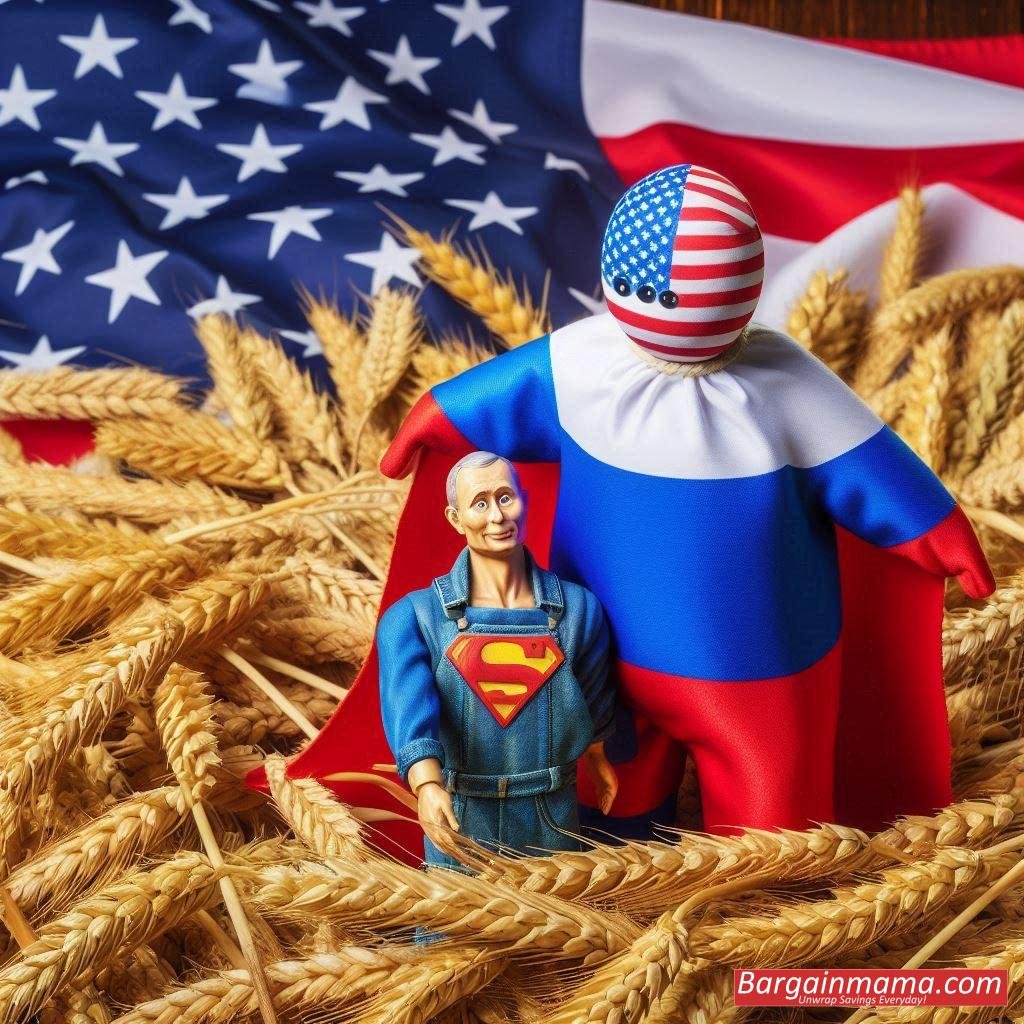Among all the crops in the complex network of international agriculture, wheat is one of the most essential. Wheat is the foundation of many delicious foods across the world, from the ordinary loaf of bread to the exotic couscous and the cherished pizza crust. But recent wild events in the wheat market—mainly caused by a lack of Russian wheat—have rocked the sector and raised concerns about increased food prices and supply chain disruptions.

With worldwide wheat stocks perilously close to a shortage, the current situation is concerning. Unfavorable weather in Russia, the world’s largest wheat producer, has caused harvest expectations to spiral down, driving up benchmark prices by almost 10% in only a month. In the middle of all of this uncertainty, Kansas, the center of America’s wheat belt, begins to shine with promise.
Kansas, known for being the leading wheat-producing state in the US, is currently seeing an unanticipated increase in wheat output. A plentiful harvest is approaching, marked by fields painted in vivid green hues, which are a result of opportune rain and snow showers that have accelerated crop development. According to recent evaluations, Kansas is expected to produce a bountiful harvest that will likely exceed expectations and perhaps approach a three-year record of 290.4 million bushels, an 8.4% rise over earlier projections.
The observations gained from the annual Wheat Quality Council crop tour demonstrate the confidence that surrounds Kansas’s wheat harvest. Crop scouts traveled through Nebraska, Kansas, and Oklahoma, carefully inspecting fields to determine their prospective yield. Although there have been isolated cases of frost damage and fungal infections, overall conditions are favorable. Kansas is expected to yield 46.5 bushels per acre, which is far more than the drought-stricken estimates from the previous year.

But amid the hope, there’s a note of caution as well. The production forecasts might be jeopardized by dry spells and excessive heat, thus the success of the harvest depends on the weather in the upcoming weeks. In the words of the Wheat Quality Council’s executive vice president Dave Green, “it better start raining pretty quick to get these numbers.”
The revival of US wheat output has wider ramifications for the world market, especially considering the growing Russian deficit. Due mostly to pricing competition, the US has historically behind Russia in wheat exports. The recent increase in the price of Russian wheat, however, has tipped the odds in favor of US wheat and created a chance for increased market share and export growth.
The importance of this change is shown by current trends in global commerce. Brazil has shifted to US wheat in response to the consequences of the Russian shortage, suggesting a possible increase in demand. Similar to this, Mexico, a significant buyer of US wheat, is resuming its efforts to move its supply away from Russia, which presents a profitable opportunity for US exporters.
To put it another way, the revival of US wheat output both restores US standing in the world wheat market and lessens the effects of the Russian deficit. “The US should find some additional HRW wheat demand,” says StoneX grain expert Mike O’Dea, referring to the hard red winter type that is most common in Kansas. The possibility of increased export initiatives and a revitalized presence in important markets highlights the critical role that US wheat plays in stabilizing global supply chains and reducing worries about food inflation.

The rise of US wheat as a resilient rescuer amid the volatility of the world wheat market provides a glimmer of optimism. The state of wheat trade is about to undergo a radical change, with Kansas leading the way in the recovery of output and changing factors supporting US exports. A sustainable future for this essential product is ensured by the tenacity and adaptation of agricultural communities, exemplified by Kansas farmers, despite ongoing challenges.



